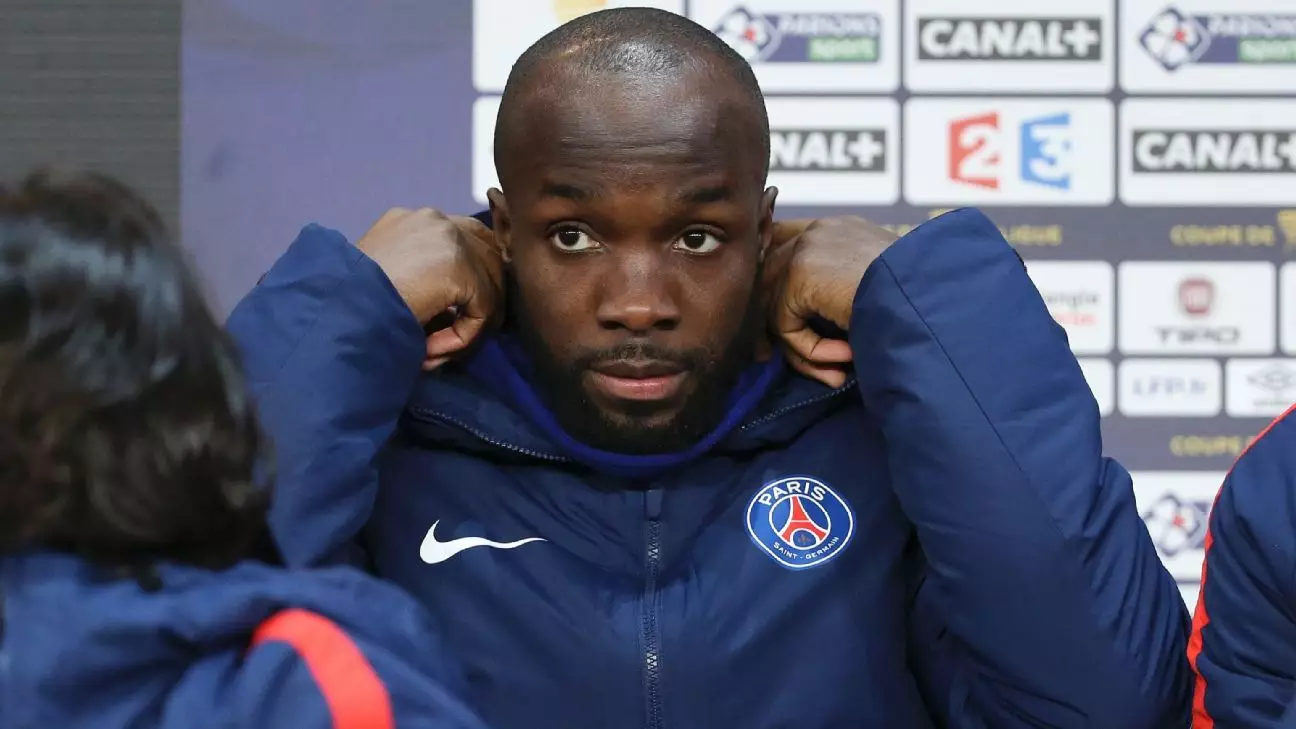Lassana Diarra’s recent legal victory against FIFA and the Belgian football federation marks a profound turning point in the world of professional football. For years, players have been ensnared in a web of restrictive transfer regulations that prioritize the interests of governing bodies over the fundamental rights of athletes. Diarra’s relentless pursuit of justice exposes systemic flaws and challenges the long-standing authority of FIFA, igniting hope for a more equitable future in international football.
This case transcends individual grievance; it highlights how existing transfer rules potentially violate European Union competition and labor laws. The landmark ruling by the European Court of Justice (ECJ) suggests that certain FIFA regulations restrict the free movement of players and stifle fair competition. Such legal insight strikes at the core of FIFA’s regulatory power, shining a spotlight on the need for legislative reform that prioritizes athlete rights over bureaucratic control.
Diarra’s dispute began with a contractual dilemma involving Lokomotiv Moscow, which not only sidelined him but also underscored the oppressive nature of transfer restrictions. His subsequent legal challenge revealed that FIFA’s policies, previously deemed sacrosanct, are vulnerable when tested against European legal standards. The intricate legal journey, which included the Court of Arbitration for Sport’s initial approval of FIFA’s stance, ultimately culminated in a decisive ECJ verdict affirming that certain rules hinder player mobility and fair competition—an inference that could herald sweeping changes across European football.
What makes Diarra’s stance truly impactful is his willingness to confront an institution as powerful as FIFA, risking professional retaliation for the sake of systemic change. His campaign is a testament to the necessity of player advocacy, especially for less prominent athletes who lack the resources to challenge the status quo. His declaration that “I am doing this for myself and for the lesser-known players” underscores a broader ethical imperative: football must evolve into a sport where talent and effort are the only currencies, not the ability to navigate bureaucratic labyrinths.
The Implications of a New Legal Paradigm
FIFA’s response to these challenges reveals a nuanced stance—acknowledging the need for reform but stopping short of immediate change. The governing body’s assertion that it “has been working with stakeholders to amend its regulations” indicates a recognition of the problem but also exposes the slow pace of institutional evolution. Change, as history shows, in organizations as entrenched as FIFA, often lags behind societal and legal progress.
Furthermore, the coalition supporting Diarra—comprising FIFPRO, national player unions, and legal advocates—amplifies the movement toward regulatory overhaul. Their push for a class-action suit signals an embrace of collective power to influence FIFA’s policies and safeguard player rights. If successful, this legal strategy could set a precedent, encouraging countless players to stand up against exploitative practices, thereby fostering an environment where talent is valued over contractual subjugation.
Critically, this legal confrontation questions the legitimacy of FIFA’s authority rooted in antiquated legal frameworks. For decades, FIFA’s rules have operated largely unchecked, provided they favor their interests. Diarra’s legal success suggests that this unchecked power is unsustainable in a modern, legally rigorous Europe. The case essentially serves as a legal indictment of theocratic governance, where sport is subordinate to player rights and fair competition principles enshrined within EU law.
Diarra’s journey underscores a compelling truth: systemic change often begins with individual courage. His willingness to challenge a conglomerate of football’s elite not only reshapes perceptions of justice in sports but also signals the dawn of a more rights-based approach to athlete management. This burgeoning legal movement could redefine contractual norms, create greater transparency, and ensure that players are no longer pawns manipulated by bureaucratic interests.
A New Horizon for Football’s Future
The bigger picture painted by Diarra’s struggle is one of hope—hope that football can be reformed from within to prioritize the athletes who bring the sport to life. It questions whether FIFA can truly remain the guardian of the game when its policies, as exposed by legal scrutiny, perpetuate unfair restrictions and hinder genuine competition. The European court’s verdict is a wake-up call: if governing bodies wish to maintain legitimacy, they must embrace transparency, fairness, and respect for individual rights.
In a broader sense, Diarra’s victory serves as a catalyst for a cultural shift within football. Players are beginning to realize they possess not just the power to excel on the pitch but also to challenge systemic injustices. This legal breakthrough could inspire future generations to advocate for themselves, forging a sport where prime talent and fair play take precedence over outdated bureaucratic dominance.
As the legal battles unfold in Belgium, and possibly across European courts, the very foundation of football’s regulatory landscape is being questioned and redefined. If Diarra’s case succeeds, it will not merely be a financial victory; it will be a symbolic triumph for fairness, student athletes, and the democratization of sport governance. Football’s future depends on whether it can shed its insular traditions and truly embrace the principles of justice and competitiveness embodied in European law.

